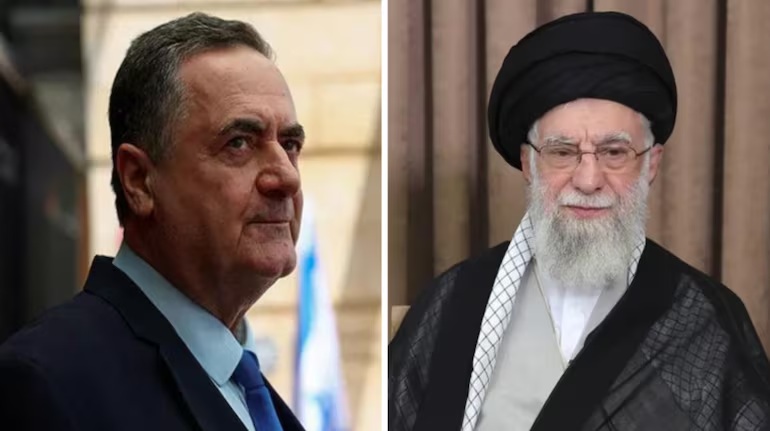Israeli Defense Minister Israel Katz on Thursday, June 26, 2025, revealed that his country intended to assassinate Iran’s Supreme Leader Ayatollah Ali Khamenei during the recently concluded 12-day war between the two regional powers.
Speaking to Israel’s Channel 13 on Thursday, Katz said the decision did not require U.S. approval and that the only barrier to the mission was the lack of an “operational opportunity.”
“We wanted to eliminate Khamenei,” Katz stated bluntly.
“But there was no operational opportunity.”
He claimed that Khamenei anticipated the threat and took extensive measures to protect himself, retreating “underground to very great depths” and severing contact with top military commanders.
Many of them had reportedly replaced senior Islamic Revolutionary Guard Corps (IRGC) officers killed in the initial Israeli strikes.
Khamenei, however, appeared in multiple video messages throughout the conflict.
There is no independent confirmation that he was entirely cut off from Iran’s military leadership.
Had the assassination occurred, it would have marked a seismic escalation in Middle Eastern geopolitics.
As both Iran’s highest authority and a spiritual figure for millions of Shia Muslims globally, Khamenei’s death would likely have triggered severe repercussions well beyond the battlefield.
The war, which began with coordinated Israeli and U.S. airstrikes on Iranian nuclear sites, concluded this week with a U.S.-brokered ceasefire.
Yet, the tension remains high, especially in light of Katz’s revelation and his assertion that Israel holds a “green light” from U.S. President Donald Trump to renew strikes if Iran is seen advancing its nuclear program.
“I do not see a situation where Iran will restore the nuclear facilities after the attack,” Katz said, referring to the extensive damage reportedly inflicted on Iran’s facilities at Fordow, Natanz, and Isfahan.
While the U.S. has claimed significant destruction of Iran’s nuclear infrastructure, Khamenei on Thursday dismissed these assertions as “exaggerated.”
The Israeli government, meanwhile, is portraying the outcome of the conflict as a strategic triumph.
Prime Minister Benjamin Netanyahu claimed the war had delivered a “great victory” over Iran and opened new possibilities for formal diplomatic progress with Arab states.
“This victory opens the path to dramatically enlarge the peace accords,” Netanyahu said in a video address.
He alluded to the Abraham Accords, the U.S.-brokered deals that normalized relations between Israel and several Arab nations in 2020.
During the conflict, Iran retaliated with a missile barrage targeting the U.S. Al Udeid Air Base in Qatar, which hosts American and allied troops.
The strike marked a turning point, pushing Washington to facilitate a ceasefire before further escalation.
Despite the damage and casualties sustained on both sides, Tehran has declared the outcome a strategic success.
Iranian officials argue that Israel failed to achieve its core objectives, namely the dismantling of Iran’s nuclear and missile capabilities.
Also, according to them, Israel was compelled to halt its offensive following the missile attack on Al Udeid.
Iran’s leadership framed the ceasefire as a concession wrung from strength.
“We defended our sovereignty and our programs,” an Iranian foreign ministry spokesperson said.
“We made it clear that any aggression would carry a price.”
The war unfolded amid growing calls from Israeli and U.S. hardliners for regime change in Iran.
U.S. President Trump, who maintained a high-profile presence throughout the crisis, posted on social media last Sunday that the war could “MAKE IRAN GREAT AGAIN.”
This is a slogan widely interpreted as support for the fall of Iran’s clerical government.
While the ceasefire has halted active fighting, both sides remain on edge.
Iran has vowed to rebuild and continue its defense programs, while Israel insists it will act again if it deems Iran to be reconstituting its nuclear infrastructure.
For now, the region has stepped back from the brink.
However, the revelations about the planned assassination of Khamenei make it clear that any future flare-up could escalate with unprecedented speed and severity.



